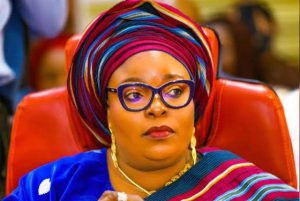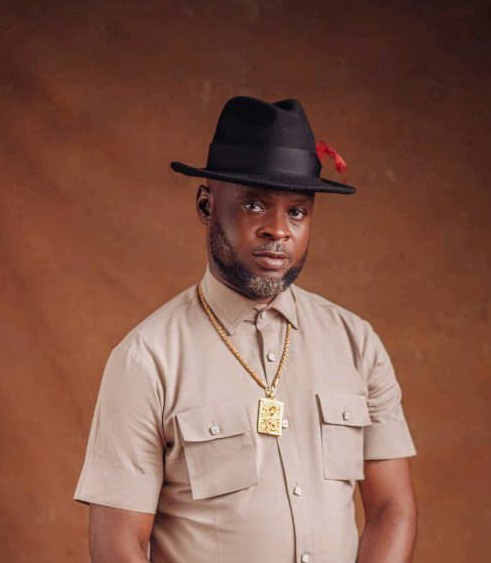Breaking
Exclusive: Lagos GAC Concludes Meeting, Meranda and Obasa to Resign

By Amatari Ebi
In a high-stakes political development, the Governance Advisory Council (GAC) has reportedly concluded a crucial meeting with members of the Lagos State House of Assembly, finalizing decisions that will shape the leadership of the legislative arm of the state. According to insider sources, Speaker Mojisola Meranda’s resignition today is to be followed by that of former Speaker Mudashiru Obasa after being briefly reinstated.
Resignations and Political Reshuffle
Sources privy to the discussions reveal that both Meranda and Obasa’s resignation letters must reach the GAC by Wednesday. This move is seen as part of a broader plan to stabilize the Assembly’s leadership following recent political tensions.
Additionally, the GAC has resolved to announce a new Speaker from the Lagos West Senatorial District on Wednesday. This decision is expected to bring clarity and closure to the leadership tussle that has gripped the state legislature in recent weeks.
Political Implications
The resignation of Meranda, who made history as the first female Speaker of the Lagos State House of Assembly, signals a return to the old political order, with Obasa’s brief reinstatement serving as a transitional arrangement. Political analysts suggest that the decision aligns with GAC’s strategic interest in ensuring stability and maintaining control over legislative affairs.
With the new Speaker set to emerge from Lagos West, speculation is rife about possible contenders. The coming days will be crucial in determining how this decision impacts governance and legislative activities in Lagos State.
Case Closed?
The GAC’s resolution appears to be a final decision on the matter, putting an end to speculation about prolonged leadership uncertainty. However, the unfolding political maneuvering suggests that more strategic calculations are at play behind the scenes.
As the state awaits the official announcement, all eyes remain on the Lagos Assembly, where power dynamics continue to shift under the watchful eyes of key political actors.
Breaking
Breaking: INC Condemns Violence, Push for Peace over Letugbene-Ogbotobo Communal Feud

… Warns Against Land-grabbing
Following recent tensions over land and oil wells, the Chairman of the Ijaw National Congress (INC), Iduwini Clan, Chief Benson Dodoru, has called for peace between the Letugbene and Ogbotobo communities in Ekeremor Local Government Area of Bayelsa State.
In a statement delivered through the INC’s legal adviser, Amb. Jeremiah Charles Ikpaka, Chief Dodoru condemned the recent actions of Letugbene youths, who took the law into their own hands by destroying structures allegedly built by Ogbotobo settlers on Letugbene land. He described the act as “uncivilized,” though born out of provocation.
According to the INC Chairman, the root of the conflict lies in attempts by Ogbotobo community members, allegedly backed by SPDC and Renaissance Africa Energy Company Ltd, to claim five oil wells located in Letugbene territory.
Dodoru accused SPDC of instigating the crisis under the pretence of planting mangrove trees, calling the claim “laughable.” He warned that if SPDC does not withdraw its activities and stop interfering in community lands, Letugbene may be forced to shut down all SPDC operations in the area.
While condemning the violent response by the youths, Chief Dodoru emphasized the need for peace and warned neighbouring communities and corporate entities to stop all land-grabbing efforts. He urged both communities to remain calm and allow the local government’s peace process to continue.
“Letugbene, Iduwini Kingdom is not afraid of war, but we want peace. Ogbotobo people are our Iduwini children. Fighting each other will only lead to loss of lives and property”, Dodoru said.
Breaking
Breaking News: Governor Sim Fubara Returns Government House Amid Renewed Hope and Seaming Uncertainties

Favour Bibaikefie
River State Governor, Siminalayi Fubara, has made a low-profile return to the Government House in Port Harcourt, quietly stepping back into the state’s seat of power after nearly three months away. His reappearance marks a turning point in what has been one of the most turbulent political episodes in the State’s recent democratic history-one characterized by federal intervention,
constitutional debates, and widespread public concern.
The political standoff began on March 18, 2025, when President Bola Ahmed Tinubu declared a six-month state, citing a breakdown in political stability and warning of a looming constitutional crisis. The decision saw the suspension of Governor Fubara, his deputy Dr. Ngozi Odu, and all members of the Rivers state House of Assembly. By the next day, Fubara had vacated the Government House under tight security, retired Vice Admiral Ibok-Ete Ibas as sole administrator. The usually lively Government House soon became a fortress-guarded by federal troops and ringed with armoured vehicles-cut off from the public and symbolic of a centralised command.
Despite this, everyday life in Port Harcourt continued, though a quiet disquiet settled over residents concerned about democratic backsliding, a lack of representation, and the uncertain future of their state.
That uncertainty shifted on June 4 when Governor Fubara was discreetly seen entering the Government House, this time with fewer aides and a smaller security team. There were jo press briefing or official ceremonies-but his presence sent a clear signal:Fubara was back in office.
According to sources close to the matter, his return followed delicate negotiations between federal representatives and respected elders from Rivers State. Although the state of emergency remains officially in place until September, a “soft transition ” has reportedly been agreed upon. Under this arrangement, Vice Admiral Ibas continues in his role as federal liaison, but Governor Fubara is expected to resume key Governance duties, particularly in administration and budgeting.
In a brief conversation with our correspondent shortly after settling back into his office, Governor Fubara expressed a spirit of reconciliation:
We are here to prove a point. We are here to continue the work the people elected us to do. This house does not belong to me. It belongs to River people, and I’m just a servant.”
Nonetheless, the governor returns to a changed political climate.The stated assembly remains inoperative,it’s activities halted under emergency conditions. Political analysts anticipate a battle for authority and legitimacy once the legislature resumes.
Meanwhile, many major infrastructure projects and financial decisions have been on hold since March, with federal officials temporary managing sate funds. Remaining control over the state’s finances is expected to be one of Fubara’s top priorities.
Adding further complexity is the continuing political influence of former governor Nyesom Wike-now serving as Minister of the Federal Capital Territory-and the main adversary of Fubara. Wike’s loyalists within the State Assembly are likely to resist any moves by Fubara to fully consolidate power.
At the same time, civil society groups and youth-led organisations are beginning to mobilize, calling for greater accountability and demanding a definitive end to the emergency rule.
Governor Fubara’s return is being viewed by many as both a comeback and a test of political durability. The road ahead is filled with procedural ambiguities, institutional resistance, and the unresolved tension of recent months.
Yet, despite the uncertainty, there’s a cautious sense of renewal-a belief that governance in Rivers State might, once again, align itself with the will of its people rather than the pressure of political power.
As the sun sets over the palm-fringed lawns of the government house, it’s lights shines once more-signalling not just Governor Fubara’s return, but the beginning a new and uncertain chapter in the state’s unfolding political drama.
Breaking
Breaking: Nigerian Navy Uncovers 12 Illegal Crude Oil Bunkering Sites in Delta Community

By Divine Perezide – IduwiniVoice
In a significant breakthrough, the Nigerian Navy has uncovered and dismantled 12 illegal crude oil bunkering sites in Obodo, an Itsekiri community near Omadino, Warri-Southwest Local Government Area if Delta State.
The operation, which took place on Sunday, June 1, 2025, was conducted by personnel of the Nigerian Navy Ship (NNS) DELTA under the Operation Delta Sanity, a renewed military campaign aimed at ending oil theft and Illegal bunkering in the Niger Delta.
According to the Navy, the discovery consisted of “12 Illegal dug-up pits filled stolen crude oil strategically hidden within the community. While the exact volume of the recovered crude has not yet been disclosed, the operation represents a major step forward in the Navy’s continued efforts to clamp down on economic sabotage and safeguard national assets in the region.
“This action is part of the Nigerian Navys intensified efforts to curb Illegal bunkering and protect national assets in the Niger Delta,” the Navy said in a statement issued after the raid via their Facebook account.

The Navy emphasized its resolve to continue pushing forward against those involved in the criminal extraction and sales of Nigeria’s oil resources. “The Nigerian Navy reiterated its commitment to remaining undeterred in its fight against crude oil theft, vowing to sustain operations in all hotspots of the region.” The statement added.
The dismantling of these Illegal sites marks one of the latest efforts under Operation DELTA SANITY, an initiative that has seen a surge in maritime security activities and interdiction of illicit oil operations in the creeks and communities of southern Nigeria.
As investigations continue, the Navy has urged residents to cooperate with security agencies by reporting suspicious activities to help maintain peace and economic integrity in the Niger Delta.
